-
Posts
5,818 -
Joined
-
Last visited
Content Type
Profiles
Forums
Downloads
Posts posted by Social Media
-
-

Former president of the Spanish football federation, Luis Rubiales, is set to stand trial for an alleged incident involving a non-consensual kiss with player Jenni Hermoso after Spain's victory in the women's World Cup. Rubiales faces charges of sexual assault and coercion following the incident, which occurred following Spain's triumph over England last August.
The 46-year-old is accused of kissing Hermoso on the lips without her consent, prompting her testimony in court against him. Rubiales vehemently denies any wrongdoing, asserting that the kiss was consensual. However, the Spanish High Court has determined that there is sufficient evidence to proceed with a trial.
In addition to Rubiales, former coach Jorge Vilda, current sporting director Albert Luque, and marketing head Ruben Rivera will also stand trial for allegedly coercing Hermoso into stating that the kiss was consensual. The severity of the charges could result in significant prison terms for those found guilty.
The court has imposed a bail of €65,000 for the sexual assault charge against Rubiales, with an additional joint bail of €65,000 for the coercion charge, shared among all accused parties. Notably, the trial will take place at the High Court due to the alleged offences occurring abroad.
As this high-profile case unfolds, it underscores the importance of respecting boundaries and ensuring consent in all interactions, particularly within professional environments like sports. The outcome of the trial will undoubtedly have far-reaching implications for the realm of sports governance and gender dynamics within football.
2024-05-10

Get our Daily Newsletter - Click HERE to subscribe
-

In a bid to tackle the alarming rise in antisemitic abuse on university campuses across the UK, Chancellor Rishi Sunak is spearheading efforts to ensure a zero-tolerance approach to hatred and discrimination. With concerns mounting over the toxic environment faced by Jewish students amidst pro-Palestine protests, Sunak is set to convene a crucial meeting with university leaders to address this pressing issue.
The Prime Minister's invitation to vice-chancellors of leading universities underscores the urgency of the matter, as reports of antisemitic incidents continue to escalate. The Union of Jewish Students (UJS) has sounded the alarm, highlighting the increasing hostility emanating from pro-Palestine encampments on campuses, which threaten to disrupt student life and safety.
Sunak's meeting aims to galvanize university leaders into action, calling for immediate disciplinary measures against any student found inciting racial hatred or violence. Moreover, the police will be involved if criminal acts are detected, signaling a robust response to safeguard the well-being of all students.
Acknowledging the surge in antisemitic incidents, Sunak emphasized the need for universities to uphold principles of tolerance and respect while fostering rigorous debate. He stressed that disruptive behavior and harassment have no place in academic settings, where diversity of thought should be celebrated without fear of discrimination.
Alongside the meeting, the government has allocated £500,000 to the University Jewish Chaplaincy to bolster support for students affected by antisemitism and intimidation. This funding forms part of a broader £7 million initiative announced by Jeremy Hunt to combat antisemitism in educational institutions.
The urgency of the situation cannot be overstated, with antisemitic incidents on university campuses more than tripling in 2023 compared to the previous year. This alarming trend underscores the imperative for swift and decisive action to root out hatred and prejudice from academic environments.
Education Secretary Gillian Keegan, Communities Secretary Michael Gove, and Security Minister Tom Tugendhat will join Sunak in the meeting, underscoring the cross-government commitment to combating antisemitism. Keegan emphasized the need for universities to crack down on abuse and ensure that protests do not disrupt campus life unjustly.
Recent pro-Palestine encampments at prestigious universities like Oxford and Cambridge have sparked widespread concern, prompting calls for divestment from Israel. While peaceful protests are recognized as fundamental rights, they must not devolve into platforms for hate speech or discrimination.
The wave of protests in the UK mirrors similar movements in other countries, highlighting the global resonance of the Israel-Palestine conflict. However, it is imperative that universities uphold their duty to provide a safe and inclusive environment for all students, irrespective of their background or beliefs.
2024-05-10

Get our Daily Newsletter - Click HERE to subscribe
-

Amid the ambitious development of Neom, Saudi Arabia's $500 billion eco-region, disturbing allegations have surfaced regarding the use of lethal force to clear land for the futuristic desert city. Former intelligence officer Col Rabih Alenezi has come forward, revealing orders to evict villagers from their homes to make way for The Line, a centerpiece project of Neom. Alenezi alleges that lethal force was authorized, leading to fatal consequences for those who resisted eviction.
The Line, envisioned as a car-free city stretching over 170 kilometers, has attracted global attention with dozens of Western companies participating in its construction. However, the development has been marred by controversy as thousands of people, primarily from the Huwaitat tribe, have been displaced to make room for the project. Satellite images reveal the obliteration of entire villages, including homes, schools, and hospitals.

Col Alenezi's testimony sheds light on the brutal tactics employed to enforce evictions, with orders explicitly sanctioning lethal force against those who resisted. The tragic death of Abdul Rahim al-Huwaiti, who was shot dead during a clearance mission, underscores the human cost of the project. While Saudi authorities claim he opened fire on security forces, human rights organizations refute this, alleging he was killed for opposing eviction.
Despite the lack of independent verification, Alenezi's account aligns with the modus operandi of Saudi intelligence missions. The indiscriminate detention and prosecution of villagers further highlight the systematic suppression of dissent surrounding Neom's development. Moreover, concerns have been raised about the adequacy of compensation offered to displaced individuals, with many receiving amounts far below what was promised.

The controversy surrounding Neom extends beyond Saudi Arabia's borders, with international stakeholders expressing dismay at the human rights violations associated with the project. Former Neom executives and business partners have raised concerns about the ethical implications of their involvement. Andy Wirth, a former senior executive, recalls feeling unsettled by reports of evictions and the lack of transparency from project managers.
Critics argue that the development of Neom should not come at the expense of local communities, whose deep-rooted ties to the land are being disregarded. Malcolm Aw, CEO of Solar Water PLC, emphasizes the importance of engaging with the local population to ensure sustainable development. However, displaced individuals fear reprisals for speaking out, highlighting the oppressive climate surrounding the project.
The case of Neom underscores broader issues surrounding mega-development projects in Saudi Arabia, where dissent is met with harsh reprisals. The international community must scrutinize the human rights implications of such initiatives and hold accountable those responsible for rights abuses. As allegations of lethal force continue to surface, the pursuit of profit must not overshadow the fundamental rights and dignity of affected communities.
2024-05-10

Get our Daily Newsletter - Click HERE to subscribe
-

Experts at a congressional hearing, shed light on Russia's alleged covert global campaign utilizing sonic weapons to target and incapacitate US intelligence officers. The House homeland security subcommittee on counterterrorism, law enforcement, and intelligence convened to investigate the enigmatic phenomenon known as Havana syndrome, which has left many US diplomats and government employees with debilitating brain injuries and hearing loss.
Greg Edgreen, a retired army officer, emphasized the gravity of the situation, asserting that Russia has systematically "targeted and neutralized" numerous US intelligence agents worldwide. His testimony underscored the alarming impact on mission-critical government officials, leading to their removal from vital posts and compromising national security.
The comprehensive investigation conducted by media outlets revealed compelling evidence implicating an elite Russian intelligence and assassination unit in the attacks, contradicting previous government assessments. Christo Grozev, chief author of the report, highlighted Russia's motive, means, and opportunity to develop and deploy non-lethal acoustic or electromagnetic wave weapons against US intelligence and law enforcement personnel.
Grozev pointed to the presence of Unit 29155 of the Russian GRU in locations coinciding with the incidents, presenting a plausible operational theory behind the anomalous health incidents (AHIs). His testimony raised questions about the US intelligence community's reluctance to attribute the attacks to a foreign adversary.
Mark Zaid, an attorney representing victims of Havana syndrome, emphasized the far-reaching effects of the attacks, extending beyond the victims to their families, including spouses, children, and pets. He lamented the lack of substantive investigations by federal agencies and called for renewed efforts to uncover the truth behind the incidents.
The bipartisan group of senators' letter to President Joe Biden urging a "renewed assessment" of Havana syndrome evidence reflects growing concerns about the phenomenon. Despite initial skepticism from government agencies, reports of AHIs have persisted, prompting calls for a comprehensive reevaluation.
The 2020 arrest of a Russian spy with potential ties to the attacks and the passage of the Havana Act in 2021 underscore the urgency of addressing the issue. The act authorizes government agencies to provide assistance to affected staff and their families, signaling a recognition of the severity of the situation.
As Congress grapples with the Havana syndrome mystery, the hearing marks a pivotal moment in unraveling Russia's covert operations and ensuring accountability for those responsible. The testimonies presented shed light on the complexities of modern espionage and the challenges of defending against emerging threats in an increasingly volatile world.
2024-05-10

Get our Daily Newsletter - Click HERE to subscribe
-
 1
1
-
-

In a significant policy shift, President Joe Biden has declared that the United States will halt certain shipments of American weapons to Israel if Prime Minister Benjamin Netanyahu orders a major invasion of the city of Rafah in Gaza. This announcement marks a turning point in the longstanding conflict between Israel and Hamas and reflects a growing recognition of the role of American weaponry in the region's ongoing violence.
Biden's statement came during an exclusive interview with CNN's Erin Burnett, where he acknowledged that American bombs supplied to Israel have been used in attacks that resulted in civilian casualties in Gaza. The president's willingness to condition weapon shipments on Israel's actions represents a departure from previous administrations' unwavering support for Israel's military endeavors.
The decision to potentially withhold arms shipments underscores the Biden administration's commitment to prioritizing civilian lives and de-escalating the conflict in the Middle East. While the United States will continue to provide defensive weapons, such as those for Israel's Iron Dome air defense system, shipments of offensive weaponry, including artillery shells and high-payload munitions, would be suspended in the event of a major ground invasion of Rafah.
This shift in policy reflects growing pressure on the Biden administration, both from within the Democratic Party and the broader international community, to reassess its support for Israeli military actions. The humanitarian crisis in Gaza, exacerbated by recent escalations in violence, has heightened scrutiny of American arms sales to Israel and raised questions about their role in perpetuating conflict.
Netanyahu's response to Biden's announcement remains unclear, but the prospect of a rift between the two leaders looms large. While Biden emphasized his commitment to Israel's security, he made it clear that American support for military operations in heavily populated areas is not unconditional.
The timing of Biden's statement coincides with escalating tensions along the Israel-Gaza border, particularly in Rafah, where Israeli airstrikes and the evacuation of civilian populations have raised concerns about the potential for further violence. Biden's warning to Netanyahu about the risks of entering populated areas echoes broader concerns about the consequences of protracted conflict and the need for a diplomatic resolution.
The decision to condition weapon shipments on Israel's conduct reflects a broader shift in US foreign policy under the Biden administration, emphasizing human rights and multilateral diplomacy. While the United States remains committed to its alliance with Israel, Biden's willingness to hold Israel accountable for its actions sends a clear message that American support is not unconditional.
Later, Biden described warning Netanyahu about the risks of becoming bogged down in Gaza, drawing parallels to the American experience in Afghanistan and Iraq. “I said to Bibi, ‘Don’t make the same mistake we made in America. We wanted to get bin Laden. We’ll help you get Sinwar,’” he said, referring to the Hamas leader in Gaza.
In the CNN interview, he sought to reframe perceptions of the American economy, touting strong job growth and efforts to combat corporate greed while questioning surveys showing voters still pessimistic about the country’s direction. “We’ve already turned it around,” Biden said, responding to a question on whether, less than six months before Election Day, he was running short on time to improve his standing among Americans on his handling of the economy.
Biden pointed to surveys showing many Americans view their own economic situation favorably, even as they look negatively on the nationwide economy. “The polling data has been wrong all along,” he said, questioning the effectiveness of phone surveys.
2024-05-09

Get our Daily Newsletter - Click HERE to subscribe
-
- Popular Post
- Popular Post

Robert F. Kennedy Jr. revealed that a dead parasite had eaten part of his brain, recounting a bizarre medical ordeal that left him grappling with memory loss and cognitive fog in 2010. The revelation came to light through a deposition reviewed by The New York Times, shedding light on Kennedy's struggle with neurological symptoms and the unexpected diagnosis that followed.
Kennedy's symptoms, including memory loss and mental fogginess, initially raised concerns of a possible tumor. However, a startling twist emerged when doctors discovered a dark spot on his brain scans, leading them to suspect the presence of a tumor. As Kennedy prepared for surgery to remove the supposed tumor, another doctor intervened with a surprising diagnosis: a dead parasite lodged in his brain.
In the deposition, Kennedy recounted the doctor's explanation, revealing that the parasite had burrowed into his brain, consumed a portion of tissue, and subsequently perished. The unexpected diagnosis shed new light on Kennedy's cognitive struggles and prompted a reevaluation of his medical condition.
The revelation of the brain parasite was not the only medical challenge Kennedy faced during that period. The deposition also revealed that he had suffered from mercury poisoning, likely stemming from excessive fish consumption. Mercury poisoning can cause neurological disturbances and memory issues, further complicating Kennedy's health situation.
Despite grappling with cognitive problems, Kennedy embarked on an independent bid for the presidency in the wake of his failed Democratic primary campaign. However, concerns about his age and health have lingered, with voters questioning his fitness for office alongside incumbent President Biden and former President Trump.
In a recent interview with The Times, Kennedy expressed relief at having overcome his memory loss and cognitive issues, with no lingering effects from the brain parasite. He confirmed that he did not require treatment for the parasite and attributed his recovery to medical intervention and his body's natural healing processes.
While Kennedy's health journey has been marked by uncertainty and challenges, his resilience in overcoming adversity offers hope for the future. As he continues to advocate for public health and environmental causes, Kennedy's experience serves as a reminder of the importance of resilience and perseverance in the face of adversity.
2024-05-09

Get our Daily Newsletter - Click HERE to subscribe
-
 2
2
-
 1
1
-
 3
3
-

The world's oceans are undergoing an unprecedented streak of warmth, with April marking the 13th consecutive month of record-high sea surface temperatures, according to the Copernicus Climate Change Service. This milestone highlights a concerning trend in oceanic heating that has far-reaching implications for global climate patterns.
While the focus of climate change discussions often revolves around rising air temperatures, the oceans play a crucial role in absorbing and storing excess heat from greenhouse gas emissions. The ongoing surge in oceanic temperatures underscores the profound impact of climate change on Earth's marine environments.
The implications of this prolonged heat streak are significant. Warmer ocean waters provide more energy to fuel storm systems, leading to increased precipitation over land. This can exacerbate extreme weather events, including hurricanes, typhoons, and heavy rainfall, with potentially devastating consequences for coastal communities and ecosystems.
Although the current spike in ocean temperatures coincides with an El Niño event in the tropical Pacific, the extent and duration of the heat exceed typical fluctuations associated with natural climate cycles. This suggests that human-induced factors, such as greenhouse gas emissions, are driving the sustained warming trend in the world's oceans.
Carlo Buontempo, director of the Copernicus Climate Change Service, emphasized the role of increasing greenhouse gas concentrations in driving global temperature rise. He cautioned that while temperature variations linked to natural cycles like El Niño may fluctuate, the long-term accumulation of heat in the ocean and atmosphere poses a persistent threat to the planet's climate stability.
The record-breaking warmth observed across all ocean basins underscores the urgency of addressing climate change through coordinated international efforts. As temperatures continue to climb, the need for proactive measures to mitigate greenhouse gas emissions and adapt to the changing climate becomes increasingly apparent.
2024-05-09

Get our Daily Newsletter - Click HERE to subscribe
-
 1
1
-
 1
1
-
-

Few conflicts have captured global attention recently quite like the animosity between Iran and Israel. What was once an unlikely clash between two nations has now evolved into a complex and deeply rooted ideological feud that threatens to engulf the entire Middle East in turmoil.
The historical narrative between Iran and Israel is a tale of paradoxes and contradictions. Despite sharing a historical affinity dating back over two millennia, with Persia's King Cyrus the Great liberating the Jews from Babylonian Captivity, the modern relationship between these two nations is defined by animosity rather than camaraderie.
At the heart of this discord lies a clash of ideologies. Iran's transition from a U.S.-allied monarchy to an anti-American theocracy under Ayatollah Khomeini in 1979 marked a pivotal moment in the nation's history. Khomeini's vision for Iran, encapsulated in his treatise "Islamic Government," laid the groundwork for a regime that prioritized revolutionary zeal over national interests.
Central to Khomeini's ideology was a vehement anti-Semitic rhetoric that demonized Jews as "wretched" and "satanic" adversaries. His vision for Iran was built on pillars of hostility towards America, Israel, and the subjugation of women, setting the stage for decades of animosity between Iran and the Jewish state.
Fast forward to the present day, and Iran's Supreme Leader, Ayatollah Ali Khamenei, continues to espouse a narrative of anti-Zionism and unwavering support for groups opposed to Israel. Under Khamenei's leadership, Iran has actively funded and armed proxy militias across the Middle East, including Hezbollah in Lebanon, Hamas in Gaza, and various Shiite militias in Iraq and Syria.
For Iran, hostility towards Israel serves as a means to assert its dominance in the region and vie for leadership in the predominantly Sunni Arab world. However, this antagonism is not driven by genuine concern for the Palestinian cause but rather by a desire to undermine Israel's existence and expand its influence.
Despite Iran's commitment to its revolutionary ideology, the regime is not impervious to external pressure. When faced with the prospect of full-blown conflict or crippling economic sanctions, Tehran has shown a willingness to tactically retreat to preserve its grip on power.
However, beneath the surface lies a population disillusioned with the regime's confrontational approach towards Israel. Iranians, weary of living under a repressive theocracy, recognize that their true adversaries lie within their own borders, not across the border in Israel.
Iran's conflict with Israel has not only fueled Israeli anxieties but has also hindered progress towards peace in the region. The threat of a nuclear-capable Iran with expansionist ambitions has galvanized Israeli politicians and facilitated normalization agreements between Israel and Arab states equally wary of Iran's growing influence.
Ultimately, the resolution of the conflict between Iran and Israel hinges on Iran's willingness to prioritize the interests of its citizens over its ideological quest for Israel's destruction. Until then, the ideological chasm between these two nations will continue to cast a shadow over the Middle East, threatening stability and peace in the region.
2024-05-09

Get our Daily Newsletter - Click HERE to subscribe
-
 2
2
-
-
- Popular Post

As Russia celebrated Victory Day on Thursday, commemorating the defeat of Nazi Germany in 1945, the specter of war looms large over its aggression in Ukraine. While domestically, Victory Day evokes nostalgia for past triumphs, abroad, it serves as a tool of intimidation, perpetuating the myth of Russia's invincibility. However, amidst the fervor of military displays and nationalist fervor, a crucial truth remains overlooked: Russia can lose this war.
Despite initial assumptions of Ukraine's imminent collapse in the face of Russian aggression, the reality paints a different picture. Over two years into the conflict, Ukraine has not only held its ground but has also demonstrated resilience against formidable odds. Yet, the prevailing belief among Russia's allies and adversaries alike persists: Russia is destined for victory.
However, history offers a sobering reminder that Russia's military might is not infallible. Contrary to the myth of the invincible Red Army, Russia has faced defeat in pivotal conflicts throughout its history. From the Polish-Soviet War of 1920 to the Soviet intervention in Afghanistan, Russia's military prowess has been tested and, at times, faltered.
Moreover, the Russia of today is not the Soviet Union of the past. Unlike during World War II, Ukraine now finds itself pitted against Russia, not alongside it. The absence of American economic support, akin to the vital Lend-Lease assistance during WWII, further diminishes Russia's prospects for victory.
As negotiations and geopolitical maneuvering unfold, the crux of the matter lies in defining the war's endgame. While Russia seeks a return to the status quo, Ukraine and its allies advocate for a permanent cessation of hostilities. The outcome of this conflict holds profound implications for the global order, with far-reaching consequences extending beyond Eastern Europe.
A defeated Russia offers the promise of reform and renewal, akin to historical precedents where defeat paved the way for democratic transition. By relinquishing its imperial ambitions, Russia can embark on a path towards normalcy, characterized by respect for the rule of law and democratic governance.
For Ukrainians, victory holds a deeper significance, symbolizing resistance against fascist aggression reminiscent of WWII. Like their European counterparts, Ukrainians commemorate Victory Day on May 8th, underscoring their sacrifices and determination to confront tyranny.
Ultimately, the defeat of fascism requires a united front and unwavering commitment to democratic values. Just as the Allied coalition prevailed in WWII, today's international community must stand firm against authoritarian aggression and uphold the principles of freedom and justice.
In the face of Russia's belligerence, the choice is clear: defeat offers the promise of a brighter future, not just for Ukraine, but for Russia itself. It is a chance to break free from the shackles of imperialism and embrace a new era of democracy and peace.
2024-05-09

Get our Daily Newsletter - Click HERE to subscribe
-
 2
2
-
 1
1
-

April witnessed a continuation of alarming trends as Earth experienced its 11th consecutive month of record-breaking heat, setting a worrisome tone for the months ahead. With warmer weather already engulfing Asia and predictions of a hotter-than-usual summer looming over Europe, concerns about the escalating climate crisis are mounting.
According to the European Union’s Copernicus Climate Change Service, global temperatures in April soared to unprecedented levels, surpassing historical averages by 1.58°C (2.8°F) and earning the dubious distinction of being the hottest April on record. This relentless upward trajectory in temperatures over the past 12 months, averaging 1.61°C higher than pre-industrial levels, underscores the urgency of addressing the climate emergency.
Carlo Buontempo, Director of Copernicus, highlighted the role of greenhouse gas emissions in driving this relentless warming trend. While acknowledging the influence of natural climate cycles like El Niño, Buontempo emphasized the enduring impact of human-induced factors, which continue to propel global temperatures to unprecedented heights.
The ramifications of this warming trend are being felt across continents, with Europe bracing for a surge in temperatures in the coming weeks. The U.K.'s Met Office predicts highs of 26°C in parts of England, signaling a sweltering start to the summer season. Similarly, the Nordics are experiencing a significant rise in temperatures, with Oslo expected to reach a high of 23°C on May 14, surpassing even the traditionally warmer city of Madrid.
The Copernicus program, renowned as the world’s largest provider of climate data, relies on an extensive network of satellites, ships, aircraft, and weather stations to monitor and analyze global climate patterns. By synthesizing billions of measurements, Copernicus offers invaluable insights into the evolving dynamics of our planet's climate system, informing policymakers and stakeholders alike.
As the specter of climate change looms larger than ever before, the need for urgent and concerted action becomes increasingly apparent. Addressing the root causes of greenhouse gas emissions, transitioning to renewable energy sources, and implementing robust mitigation and adaptation measures are imperative steps in safeguarding the planet for future generations.
April's record-breaking temperatures serve as a stark reminder of the urgent need for decisive action to combat the climate crisis. Failure to act swiftly and decisively risks irreparable harm to ecosystems, livelihoods, and the well-being of billions of people worldwide. Now is the time for bold and transformative measures to secure a sustainable and resilient future for all.
2024-05-09

Get our Daily Newsletter - Click HERE to subscribe
-
 1
1
-
 1
1
-
-
Topic reminder: Hamas admits one-third of its data on Gazan deaths is ‘incomplete’
-
-
Topic Update: Sustainable calm’ proposal splits Israel and Hamas

UN chief Antonio Guterres says it is a "decisive moment for the Palestinian and Israeli people and for the fate of the entire region". There seems to be common ground between most sides about the principles: a ceasefire should take place alongside the release of Israeli hostages and Palestinian prisoners. Various draft agreements have been drawn up, setting out a complex process of how it would all work. The last deal that was described by United States Secretary of State Antony Blinken urged Hamas to swiftly accept Israel's latest and “extraordinarily generous offer” was, then turned down by Hamas.
Hamas then accepted a deal put forward by Egypt and Qatar, however this deal had no input from other stakeholders. Israel will however continue negotiations. There is some disagreement over the detail of what should happen to whom and when and in what order. Israeli officials say, for example, that its female soldiers should be released earlier than envisaged. They also say the texts should be clearer that the first 33 hostages to be released must be alive and are worried about not having a veto over which Palestinian prisoners would be released.
But there is a more fundamental sticking point about a core principle that may be harder to get past and that is when the war should end. The opening words of the draft agreement - supported by Hamas - declares that there should be a "temporary cessation of military operations between the two parties". This is largely unproblematic. Six weeks would pass while people are released, Israeli forces withdraw from some areas, displaced Gazans would be able to return to what if anything is left of their homes.
But then stage two would begin. The draft agreement then talks about a "return to sustainable calm", which it defines as "a permanent cessation of military and hostile operations". More hostages would then be released. It is this that seems to be unacceptable to Israel's government. In a statement, the Prime Minister Benjamin Netanyahu said: "Israel will not allow Hamas to restore its evil rule in the Gaza Strip, Israel will not allow it to restore its military capabilities to continue striving for our destruction. Israel cannot accept a proposal that endangers the security of our citizens and the future of our country."
In other words, Israel's government wants the right to continue taking the fight to Hamas in the long run. By contrast, Hamas wants a permanent ceasefire.
What is not clear is whether there is a way for Qatari, Egyptian and American negotiators to find a middle path through this.
2024-05-08

-

Members of Parliament are set to be briefed today on a significant data breach involving the UK Ministry of Defence (MoD), reportedly orchestrated by the Chinese state. The breach, targeting service personnel, has raised alarm bells regarding national security and diplomatic relations.
According to Sky News sources, the Chinese state is believed to be behind two or three cyberattack attempts on MoD employees, aiming at the payroll system encompassing both current service personnel and veterans. While the specific motives remain unclear, the exposed data reportedly includes sensitive information such as names and bank details, prompting concerns about potential coercion tactics.
The gravity of the situation has prompted Defence Secretary Grant Shapps to address the House of Commons, outlining a comprehensive plan to mitigate the fallout and safeguard affected individuals. The MoD has moved swiftly to reassure serving personnel, providing guidance and support while launching a thorough investigation into the breach.
Although initial findings suggest that no data has been stolen, the breach underscores the evolving threat landscape posed by state-sponsored cyberattacks. This incident comes on the heels of recent allegations by the UK government attributing malicious cyber activities to "state-affiliated actors" linked to China, further exacerbating tensions between the two nations.
The implications of this cyber intrusion extend beyond national borders, raising concerns about intelligence sharing and diplomatic cooperation. With China's growing influence on the global stage, striking a delicate balance between security imperatives and economic engagement has become increasingly challenging for policymakers.
Government minister Mel Stride emphasized the need for a nuanced approach in managing relations with China, citing the country's pivotal role in addressing pressing global issues such as climate change. However, calls for a reevaluation of China's strategic posture and its implications for national security have grown louder in political circles.
Sir Iain Duncan Smith, a Conservative MP and vocal critic of China's policies, called for a candid acknowledgment of China's systemic threat and a recalibration of strategic priorities. Against the backdrop of China's assertive foreign policy and expanding influence, the cyber breach serves as a stark reminder of the evolving nature of modern warfare.
As President Xi Jinping embarks on a diplomatic tour of Europe, the cyberattack underscores the complex dynamics shaping international relations. With geopolitical tensions on the rise, navigating the intricacies of diplomatic engagement while safeguarding national interests remains a formidable challenge for policymakers on both sides.
The fallout from the MoD cyber breach underscores the urgent need for enhanced cybersecurity measures and robust defense capabilities in an increasingly digitized world. As technology continues to redefine the contours of modern warfare, investing in cybersecurity resilience and strategic foresight is paramount to safeguarding national sovereignty and upholding democratic values in the face of emerging threats.
2024-05-08

Get our Daily Newsletter - Click HERE to subscribe
-

In a candid admission, Rishi Sunak has acknowledged the possibility that the Conservative Party may not secure victory in the upcoming general election, citing recent setbacks in local elections. Sunak's remarks come amidst growing concerns within the party regarding electoral prospects and strategic direction.
Referring to an analysis by election expert Professor Michael Thrasher, Sunak highlighted the likelihood of a hung parliament, with Labour emerging as the largest party. Expressing apprehension about Labour leader Sir Keir Starmer potentially forming a coalition government with the SNP and other smaller parties, Sunak emphasized the need for decisive action over political horse-trading.
"These results suggest we are heading for a hung parliament with Labour as the largest party," Sunak remarked, underscoring the imperative for effective governance and policy implementation. He reiterated the Conservative Party's commitment to addressing the nation's priorities through a coherent plan of action.
Amidst calls for a shift in political strategy, former Home Secretary Suella Braverman urged the Prime Minister to steer the party towards the right to regain voter trust. However, Braverman dismissed the notion of leadership change, emphasizing the need for collective effort in navigating electoral challenges.
Transport Secretary Mark Harper echoed Sunak's sentiment, asserting the party's readiness for the electoral battle despite setbacks in local elections. Harper emphasized the importance of rallying behind the Prime Minister and focusing on key government initiatives aimed at addressing economic and migration concerns.
Health Minister Maria Caulfield acknowledged the disappointing local election results but remained optimistic about the party's prospects. Caulfield highlighted the need for tangible progress in fulfilling government promises to win back disillusioned voters.
Labour's significant gains in the local elections, including a notable increase in council seats, underscored the shifting political landscape and growing discontent with the Conservative Party's performance. With Labour's resurgence and the Liberal Democrats' gains, the Conservatives face formidable opposition and the challenge of reinvigorating their electoral appeal.
As the political landscape evolves and electoral dynamics evolve, the Conservative Party must navigate internal divisions, articulate a compelling vision, and deliver tangible results to regain voter confidence and secure electoral success in the future. The looming specter of a hung parliament underscores the urgency of strategic recalibration and effective leadership to navigate uncertain political terrain.
2024-05-08

Get our Daily Newsletter - Click HERE to subscribe
-
 2
2
-
-

Mr. Sasse is president of the University of Florida
In recent weeks, higher education has faced mounting challenges to its credibility, exacerbated by incidents of chaos and unrest on university campuses. The University of Florida, however, stands as a beacon of stability and adherence to principles, even in the face of turmoil. As universities grapple with maintaining free speech while curbing disruptive behavior, UF offers a model of leadership and resolve.
At the heart of UF's approach is a commitment to distinguishing between speech and action. While free expression is fundamental to the educational process, the university draws a clear line at unlawful behavior. This distinction ensures that dialogue and debate can flourish within a safe and respectful environment. By upholding the principles of the First Amendment, UF fosters an atmosphere where diverse viewpoints can coexist without fear of violence or intimidation.
Moreover, UF prioritizes consistency and transparency in its policies and actions. Empty threats and half-hearted gestures only serve to undermine the institution's credibility. Instead, UF takes a firm stance against disruptive behavior, delivering clear consequences for those who violate campus rules. By following through on its commitments, UF demonstrates its dedication to upholding order and protecting the rights of all members of the university community.
In confronting challenges to free speech, UF also recognizes the importance of recommitting to genuine education. Rather than succumbing to ideological dogma, the university encourages critical thinking and intellectual exploration. Through rigorous teaching and open dialogue, UF equips students with the tools to navigate complex issues and engage with differing perspectives. In doing so, UF prepares students for the realities of the world beyond campus, where civil discourse and informed debate are essential to progress.
UF's approach to maintaining order and promoting free speech serves as a model for higher education institutions across the country. By prioritizing principles over appeasement and fostering an environment of intellectual inquiry, UF demonstrates that responsible leadership can lead to meaningful change. As universities continue to grapple with the challenges of the modern era, UF stands as a testament to the enduring value of academic freedom and the pursuit of knowledge.
2024-05-08

Get our Daily Newsletter - Click HERE to subscribe
-

In a solemn address at the U.S. Holocaust Memorial Museum’s Annual Days of Remembrance ceremony, President Biden delivered a powerful message urging Americans to confront the scourge of antisemitism. He denounced the recent wave of antisemitic incidents, particularly on college campuses, and called for a collective effort to combat hatred and bigotry.
Biden's speech resonated with urgency as he highlighted the disturbing rise in antisemitic incidents across the United States. He spoke directly to the experiences of Jewish students who face harassment and intimidation while simply trying to attend classes. The president condemned the proliferation of antisemitic posters and slogans, as well as the alarming calls for the destruction of Israel, the only Jewish state in the world.
Drawing attention to the horrors of the Holocaust and the more recent Hamas attacks on Israel, Biden emphasized the importance of remembering the past to prevent history from repeating itself. He condemned Hamas's use of sexual violence to terrorize Jews and underscored the need to confront such atrocities with unwavering resolve.
While expressing support for peaceful protests and free speech, Biden issued a stern warning against the spread of hate speech and violence on college campuses. He reaffirmed America's commitment to protecting the fundamental right to express dissenting views but stressed that there is no place for antisemitism or threats of violence in any corner of the country.
In reaffirming his unwavering commitment to Israel's security and right to exist, Biden acknowledged the complexities of the situation in the region. Despite disagreements with Israeli Prime Minister Benjamin Netanyahu's policies, Biden reiterated his administration's steadfast support for Israel's security and stability.
Reflecting on the recent protests that have targeted his administration's pro-Israel stance, Biden emphasized the need to remember the atrocities committed by Hamas and stand firm against terrorism. He reminded Americans that forgetting the past only emboldens those who seek to perpetrate hatred and violence.
Biden's call to action resonates beyond the confines of the Holocaust Memorial Museum, serving as a stark reminder of the ongoing struggle against antisemitism and bigotry. As the nation grapples with the resurgence of hate, the president's words serve as a rallying cry for unity and solidarity in the face of intolerance.
In the wake of Biden's impassioned address, Americans are challenged to confront the uncomfortable truths of history and stand up against hate in all its forms. It is only through collective action and unwavering resolve that we can build a more just and inclusive society for future generations.
2024-05-08

Get our Daily Newsletter - Click HERE to subscribe
-

A US soldier finds himself detained in Vladivostok, Russia, facing charges of theft, marking another notable arrest of an American citizen by Russian authorities. Staff Sgt Gordon Black, stationed in South Korea, was apprehended during a trip to Vladivostok, sparking international attention and diplomatic discussions.
Amidst concerns over political motivations, both the US army and Russian law enforcement confirm the arrest. Unlike previous cases involving espionage or political crimes, Russian officials assert that this incident is unrelated to political agendas, clarifying that it stems from allegations of theft.
Details emerge painting a complex picture of the soldier's situation. Black, married and on a "side trip" after completing his deployment, allegedly traveled to Vladivostok without authorization from his superiors. His encounter with a Russian girlfriend, whom he met in South Korea, took an unexpected turn, leading to accusations of theft after their disagreement.
The sequence of events unfolds as Black's girlfriend reports the alleged theft to local authorities, prompting his detention. Despite already purchasing tickets back to the US, the soldier faces pre-trial detention until July 2, pending further legal proceedings.
The case highlights the delicate balance between personal relationships, international travel, and legal repercussions. With tensions between the US and Russia already strained, the arrest adds another layer of complexity to diplomatic relations.
As negotiations continue between Washington and Moscow, concerns over wrongful detention persist. The case of Evan Gershkovich, a Wall Street Journal reporter arrested in 2023, looms large, alongside others deemed to be unlawfully detained. The potential for a hostage exchange underscores the urgency of resolving such cases and preventing further escalation.
As the US advises against travel to Russia, the case of Staff Sgt Gordon Black serves as a cautionary tale.
2024-05-08

Get our Daily Newsletter - Click HERE to subscribe
-
- Popular Post

Judge Juan Merchan has rejected former President Trump's legal team's plea for a mistrial following Stormy Daniels's explicit testimony on Tuesday. While acknowledging that Daniels's testimony delved into "too much detail," Merchan determined that it did not warrant declaring a mistrial. Trump's attorneys argued that Daniels, a key witness for the prosecution, altered her narrative during her testimony, and the jury was exposed to inappropriate specifics regarding her alleged encounter with Trump. Todd Blanche, Trump's attorney, contended that the boundaries for Daniels's testimony were disregarded.

Although refusing a mistrial, Judge Merchan agreed to issue a limiting instruction concerning certain aspects of Daniels's earlier testimony, restricting the jurors' use of it.
Daniels returned to the stand after the court's lunch break to continue her direct examination. She had been called by prosecutors earlier in the day, finally delivering her much-anticipated testimony after weeks of anticipation. Daniels asserts that she engaged in an affair with Trump in 2006, a claim Trump denies. The prosecution's case revolves around Trump's former lawyer Michael Cohen's $130,000 payment to Daniels to maintain secrecy about the alleged affair.

Trump, who has pleaded not guilty, faces 34 counts of falsifying business records related to the payment. Blanche requested a mistrial after Daniels's graphic morning testimony, alleging inconsistencies in her story and objecting to the explicit details revealed.
Susan Hoffinger, a prosecutor from the Manhattan district attorney's office, refuted Blanche's claims, arguing that Daniels's narrative has been public for years and that the defense should have been prepared for her testimony. With the defense's consent, Hoffinger advised Daniels to remain focused on the questions asked during her testimony.
Despite the defense's objections, Daniels resumed her testimony, with Trump's attorneys yet to cross-examine her. The courtroom drama surrounding the trial is expected to continue as the proceedings unfold throughout the day. Live updates
2024-05-08

Get our Daily Newsletter - Click HERE to subscribe
-
 1
1
-
 2
2
-
The topic here is for daily updates on the Israel/Hamas war which started on Oct 7th not historical perspectives. There are other dedicated topics for that.
-

Vladimir Putin's oath renewal for his fifth presidential term in Russia marks not only a personal milestone for the leader but also a testament to the enduring grip he holds over the nation. Stepping once again through the familiar corridors of the Grand Kremlin Palace, Putin's inauguration ceremony was a symbolic reaffirmation of his authority, as he pledged to overcome obstacles and lead Russia to victory.
Yet, beneath the pomp and ceremony lies a nation transformed since Putin's first inauguration over two decades ago. What began as promises to preserve democracy and nurture Russia's growth has evolved into a regime marked by curtailed freedoms and assertive foreign policies. Fiona Hill, a former White House national security advisor, reflects on Putin's journey, from stabilizing Russia to embracing imperialist ambitions, likening his reign to that of a modern-day tsar.
Putinism has become a defining term, encapsulating an era of personalized power and political repression. Andrei Kolesnikov, senior fellow at the Carnegie Eurasia Russia Centre, draws parallels between Putin's rule and Stalinism, highlighting the authoritarian tendencies and enduring grip on power. As Putin embarks on his fifth term, questions arise about how the West should engage with an increasingly assertive Russia under his leadership.
The specter of nuclear weapons adds a new dimension to the challenge posed by Putin's regime. Fiona Hill underscores the need for international cooperation to restrain Russia's nuclear ambitions, emphasizing the importance of creating a framework to counter Putin's aggressive posturing. In the face of a leader determined to restore Russia's greatness, the West must navigate a delicate balance between deterrence and engagement.
Despite Putin's overwhelming electoral victory, questions linger about the legitimacy of his rule. The absence of credible challengers and concerns over the fairness of the electoral process cast doubt on the true extent of Putin's popular support. In towns like Kashira, where a colossal Putin mural dominates the landscape, opinions vary among the populace. While some express admiration for Putin's leadership, others lament the lack of alternatives and fear reprisals for dissent.
As Putin embarks on another term, Russia finds itself at a crossroads, grappling with the legacy of his rule and the uncertainties of the future. The Putin era has left an indelible mark on Russian politics, shaping the nation's trajectory for years to come. Yet, as the Putin portrait fades into the background of everyday life, the challenges of governance and the quest for change persist, underscoring the complexities of Russia's political landscape under Putin's firm control.
2024-05-08

Get our Daily Newsletter - Click HERE to subscribe
-

Former US President Donald Trump has once again found himself in legal jeopardy as he was held in contempt of court for the 10th time in his hush-money trial in New York. Justice Juan Merchan, presiding over the trial, issued a stern warning to Mr. Trump, stating that further violations of the gag order could result in jail time.
The judge emphasized the importance of upholding the dignity of the judicial system and expressed his frustration at Mr. Trump's repeated defiance of the gag order. This latest ruling marks the second time that Mr. Trump has been found in contempt for violating the gag order, with previous fines failing to serve as a deterrent.
In response to Mr. Trump's repeated violations, Justice Merchan warned that the court may have to consider imposing a jail sanction in order to enforce compliance. While acknowledging the disruptive nature of incarcerating a former president, the judge emphasized that such actions were necessary to uphold the rule of law.
Mr. Trump, who has pleaded not guilty to charges of falsifying business records, remained defiant in the face of the court's warning. He characterized the gag order as "disgraceful" and reiterated his commitment to defending the Constitution, despite the potential threat of jail time.
Prosecutors argued that Mr. Trump's social media posts, in which he criticized the jury selection process, violated the gag order by undermining the integrity of the proceedings. Justice Merchan echoed these concerns in his written ruling, highlighting the potential impact of Mr. Trump's statements on the safety of jurors and their loved ones.
In addition to the threat of incarceration, Mr. Trump was ordered to pay a $1,000 fine and remove the offending social media post by a specified deadline. His defense lawyer, Todd Blanche, has defended Mr. Trump's actions, arguing that the gag order is unjust.
As the trial enters its third week, tensions continue to escalate between Mr. Trump and the judicial system. The outcome of this high-profile case remains uncertain, but one thing is clear: the former president's repeated violations of the gag order have put him on a collision course with the law.
2024-05-07

Get our Daily Newsletter - Click HERE to subscribe
-
 1
1
-
 1
1
-
-

In the quiet town of Bushmills, County Antrim, a horrifying incident unfolded in the early hours of Sunday morning, leaving residents and visitors stunned. A man in his 20s was discovered nailed to a fence, with nails through each hand, shortly after midnight in a car park near Dundarave Park. The scene was further marred by the sight of two vans ablaze, one of which belonged to the injured man, intensifying the sense of dread and alarm.
The Police Service of Northern Ireland (PSNI) has labeled the attack as "sinister," with paramilitary involvement being one of the primary lines of inquiry. Graffiti found on nearby public toilets has been linked to the assault and arson. While the victim sustained potentially life-changing injuries, they are fortunately not life-threatening. However, the brutality of the attack has sent shockwaves through the community and raised concerns about the resurgence of paramilitary-style violence.

Assistant Chief Constable Bobby Singleton described the incident as "really shocking" and reminiscent of a bygone era of violence. The presence of holiday lets in the area compounded the distress, turning what should have been a tranquil bank holiday weekend into a scene of horror and chaos.
Eyewitnesses, including tourists staying in mobile homes and camper vans, recounted their disbelief at waking up to the commotion. One camper, Jackie, described her shock at witnessing the aftermath of the attack and lamented the tarnishing of Bushmills' reputation as a tourist destination.
Local officials, including Causeway Alliance councillor Alderman Richard Stewart and TUV leader Jim Allister, condemned the attack in the strongest terms, emphasizing that such violence has no place in modern society. The community, still reeling from the shock, has united in solidarity with the victim and their family, while also urging anyone with information to come forward and assist the police investigation.
The assault in Bushmills serves as a grim reminder of the lingering specter of paramilitary activity in Northern Ireland and the importance of remaining vigilant against such threats. As the investigation continues, residents and authorities alike are left grappling with the unsettling reality of violence returning to their doorstep, threatening the peace and tranquility they hold dear.
2024-05-07

Get our Daily Newsletter - Click HERE to subscribe
-

On CBS's "Face the Nation," Senator John Fetterman of Pennsylvania shared his views on the ongoing pro-Palestinian college protests, framing them as counterproductive to peace efforts in the Middle East.
Fetterman, known for his vocal support of Israel, characterized the demonstrations on college campuses as "pup tents" for Hamas, the militant group controlling the Gaza Strip. When questioned about the display of Palestinian flags during these protests, Fetterman did not label it as inherently antisemitic but expressed concerns about the overall impact of the protests on peace efforts.
During the interview, Fetterman highlighted the irony that while the protests were initially sparked by calls for a cease-fire, Hamas had refused to accept the terms of a proposed truce. He questioned why the focus of the protests had shifted away from urging Hamas to agree to a cease-fire that could end the violence and chaos in Gaza.
The United States has been actively advocating for a temporary cease-fire in Gaza to secure the release of hostages held by Hamas. Secretary of State Antony Blinken has emphasized the urgency of the situation, stating that the "time is now" for a cease-fire and calling on Hamas to compromise and accept Israel's proposal.
Fetterman reiterated that the conflict in Gaza could come to an end if Hamas were to release all the hostages. He emphasized the importance of prioritizing the release of hostages in discussions about the situation in Gaza, expressing frustration that their plight seemed to have been overshadowed by other issues.
The senator's remarks underscore the complex dynamics at play in the Israeli-Palestinian conflict and the role of grassroots activism in shaping public discourse on the issue. While Fetterman acknowledged the right to protest and express solidarity with the Palestinian cause, he cautioned against actions that could undermine efforts to achieve a lasting peace in the region.
The debate surrounding the Israeli-Palestinian conflict often intersects with broader discussions about identity, human rights, and geopolitical interests. As college campuses become battlegrounds for competing narratives and ideologies, lawmakers like Senator Fetterman are faced with the challenge of navigating complex political terrain while upholding principles of diplomacy and peacebuilding.
In the coming weeks and months, the debate over college protests and their impact on the Middle East conflict is likely to continue, with stakeholders on all sides weighing in on the path forward. Amidst heightened tensions and entrenched divisions, finding common ground and fostering constructive dialogue will be essential for advancing efforts to resolve one of the world's most intractable conflicts.
2024-05-07

Get our Daily Newsletter - Click HERE to subscribe
.png.3b3332cc2256ad0edbc2fe9404feeef0.png)


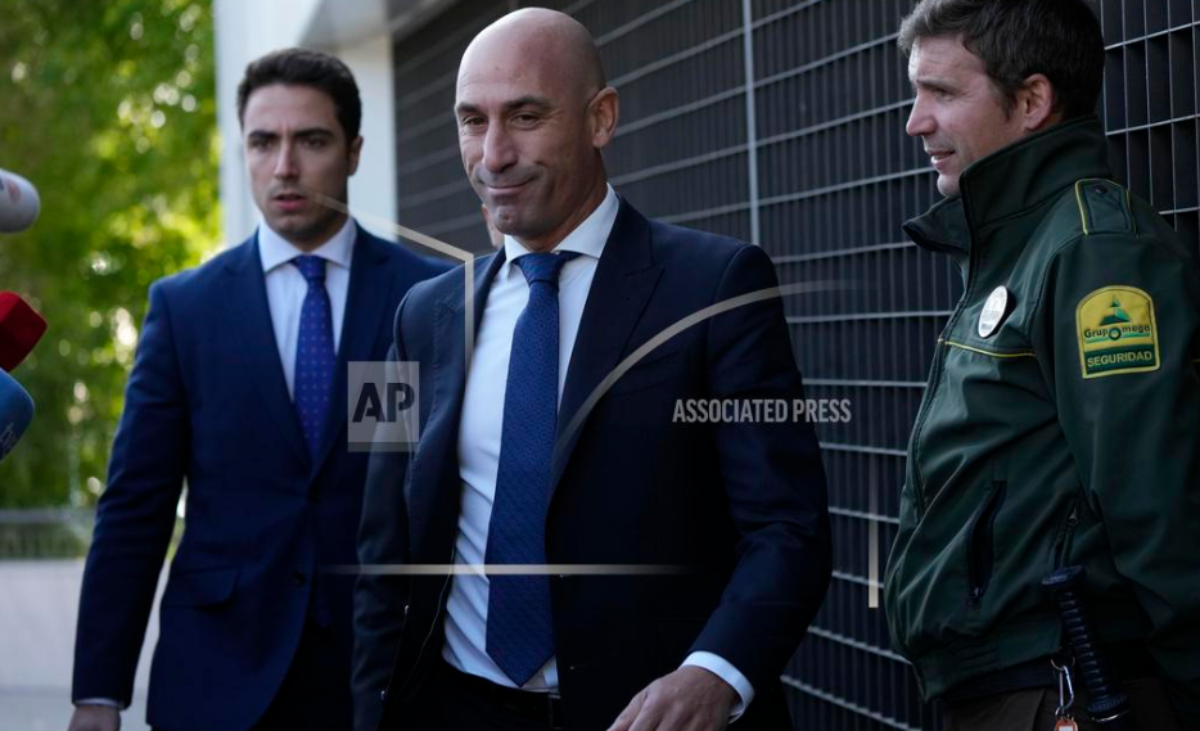

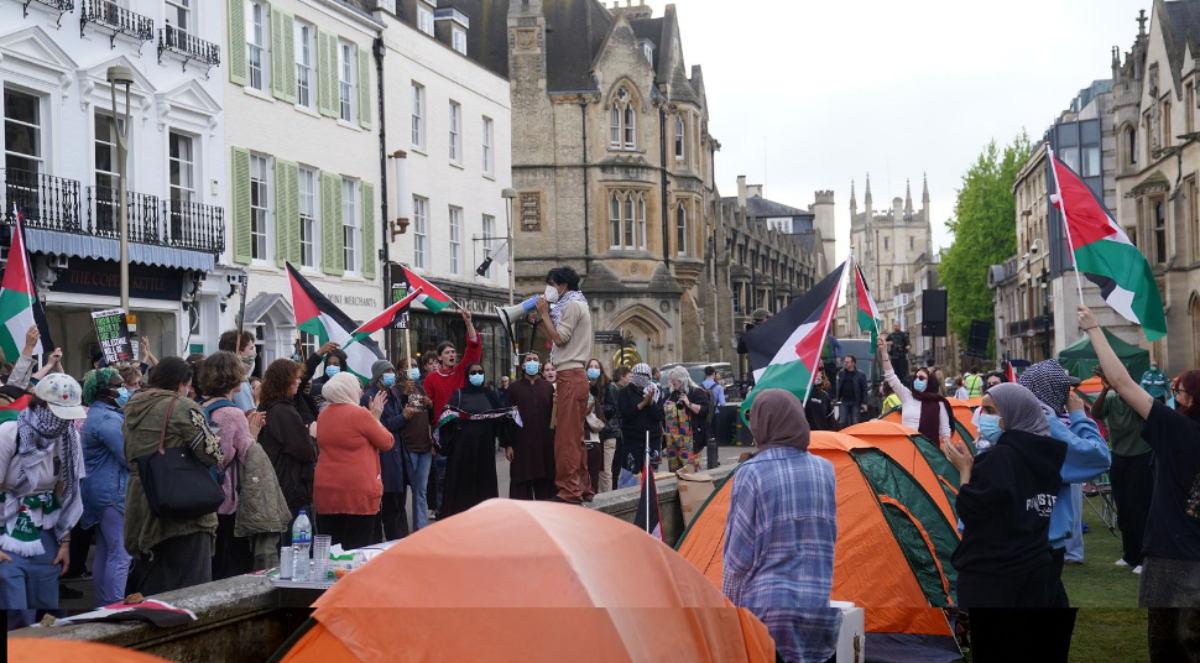

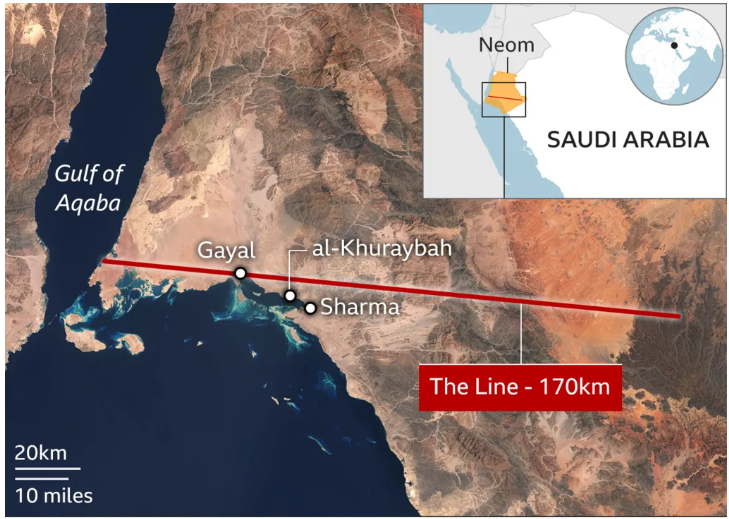

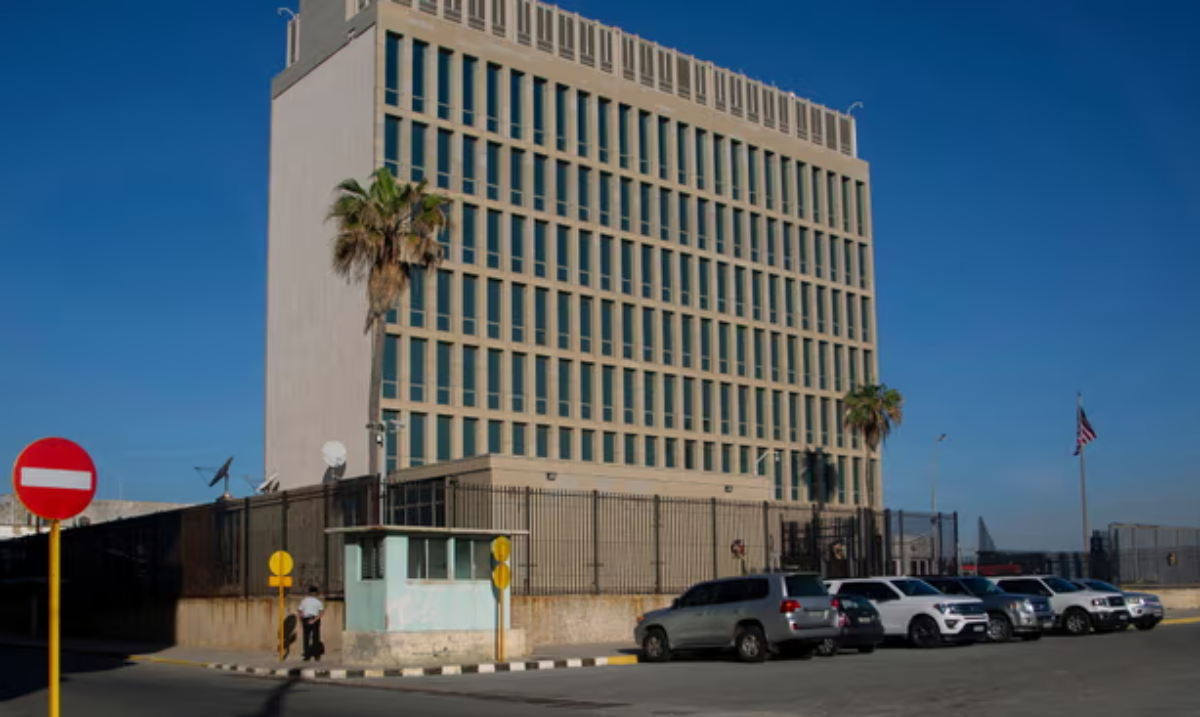
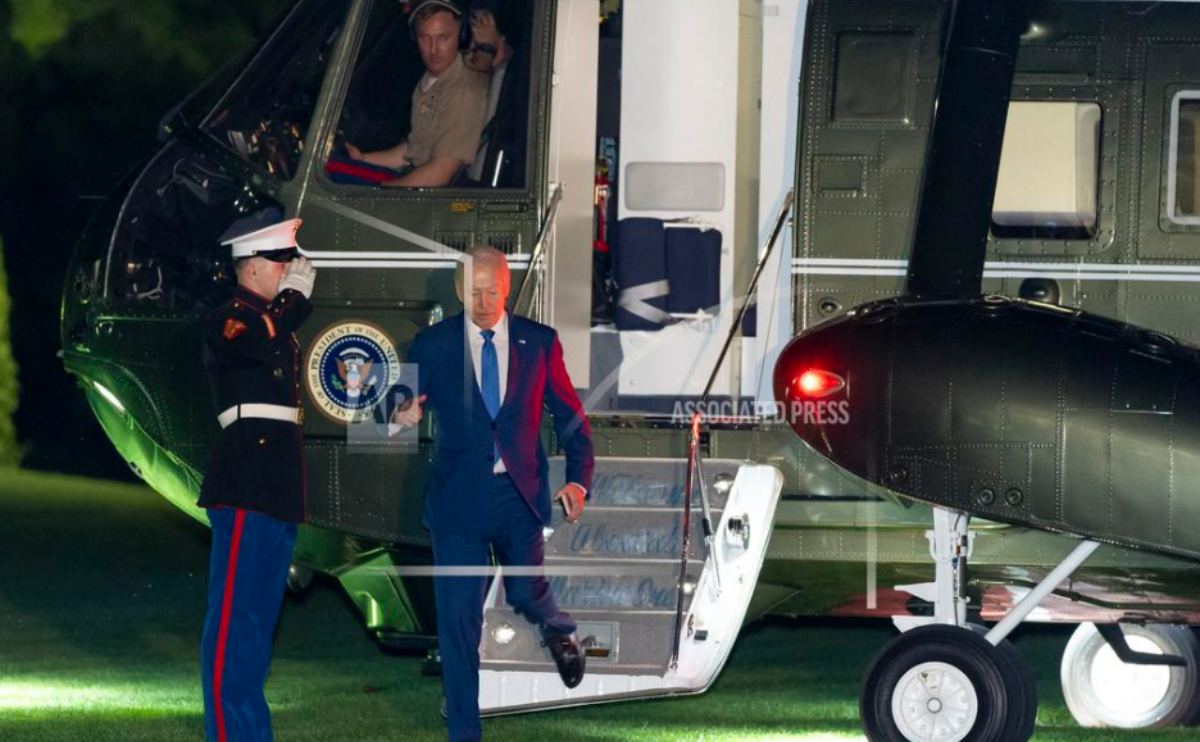
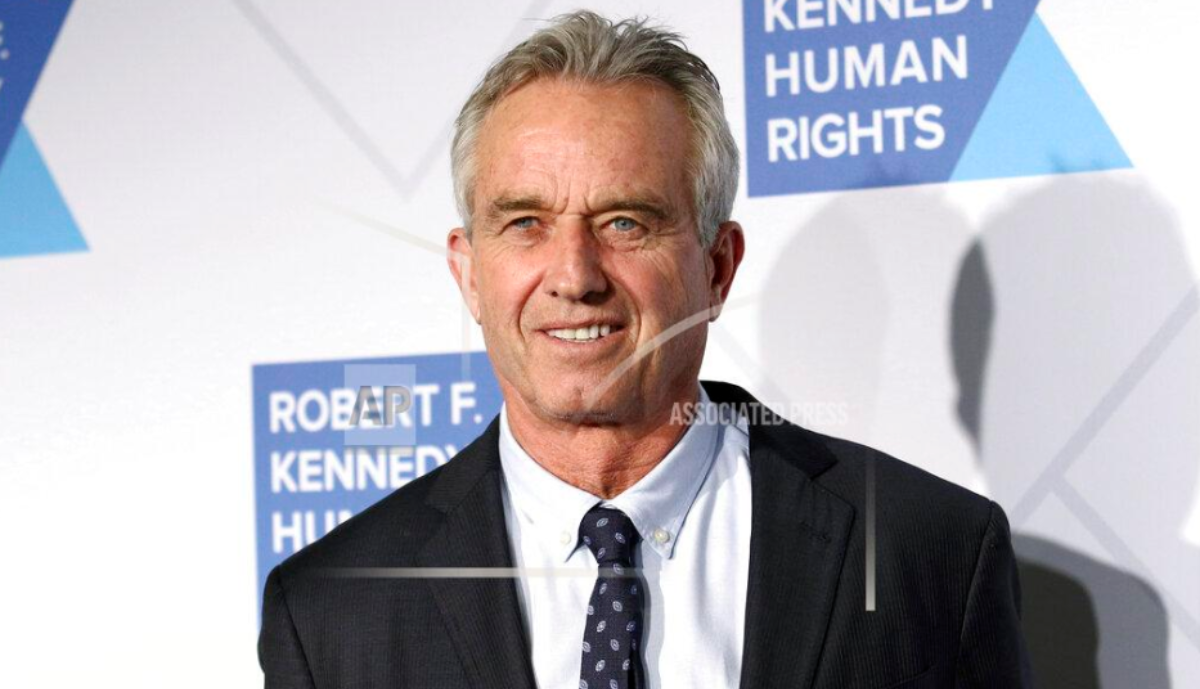
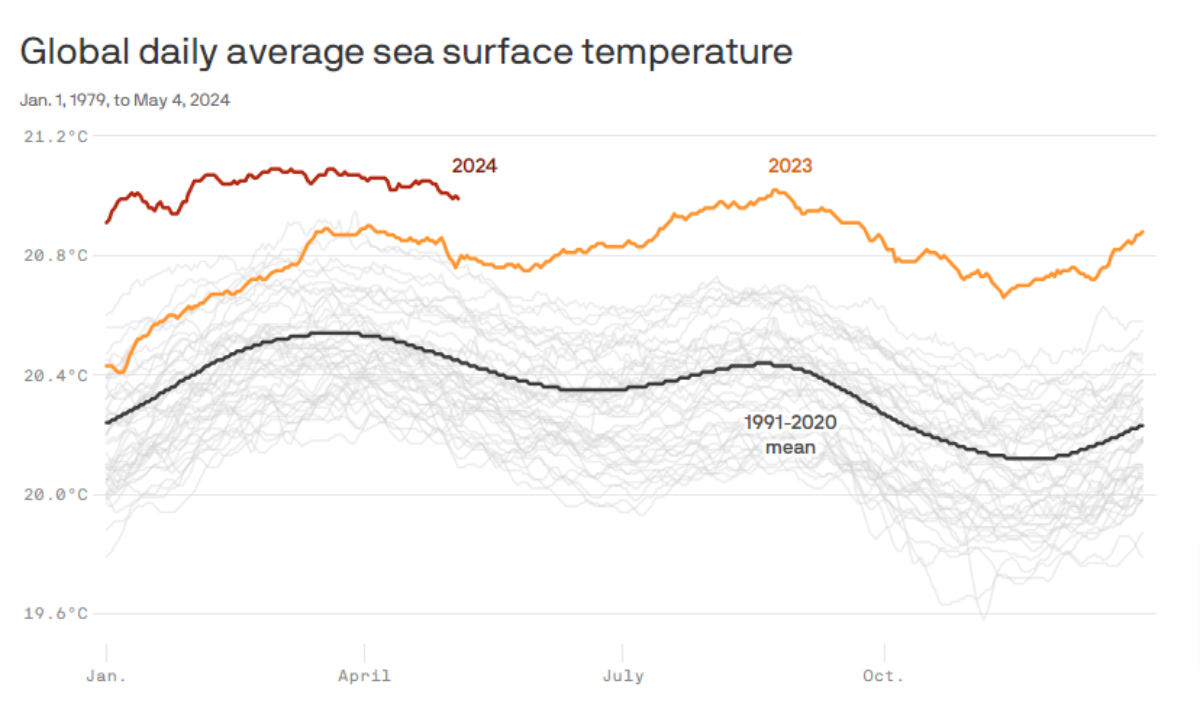
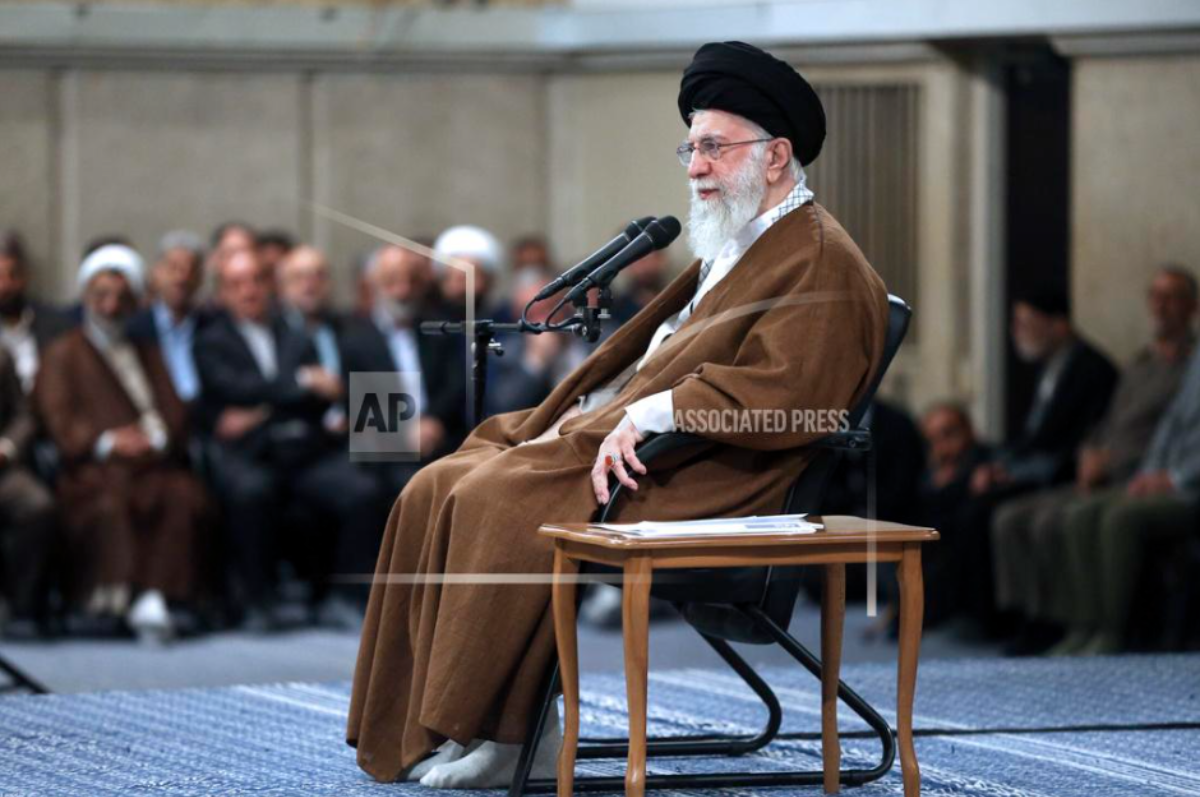
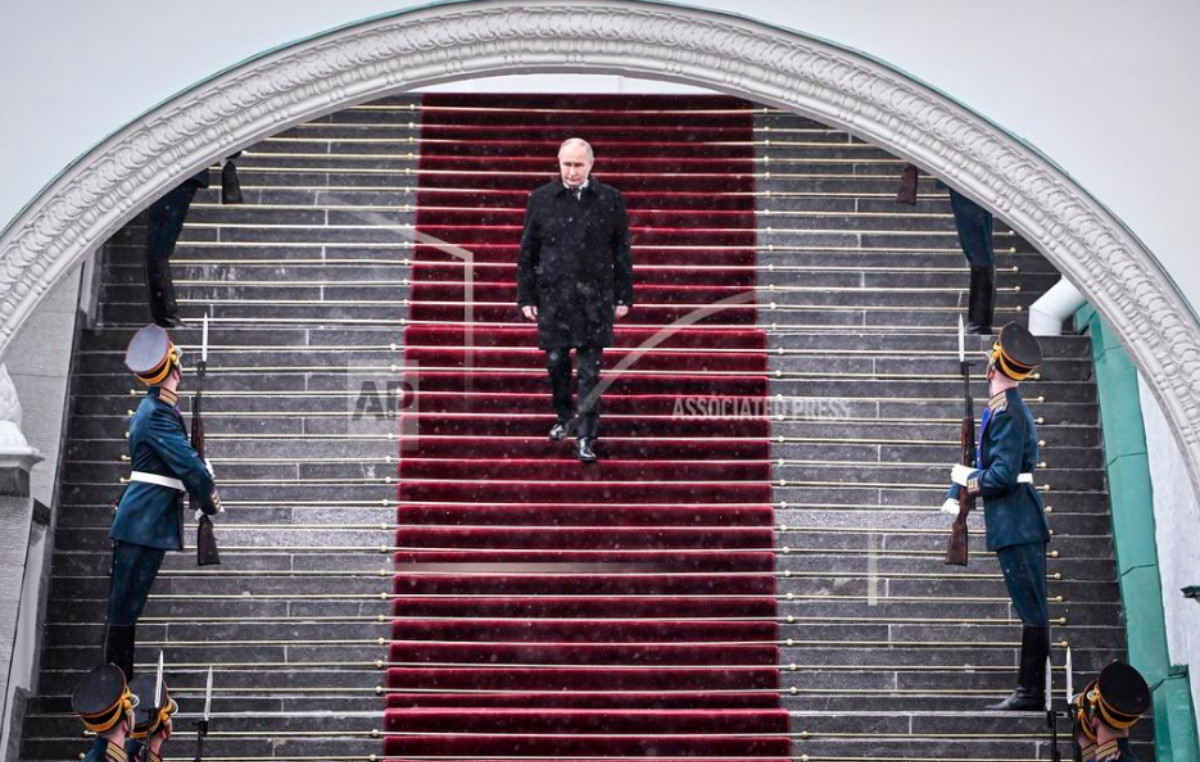
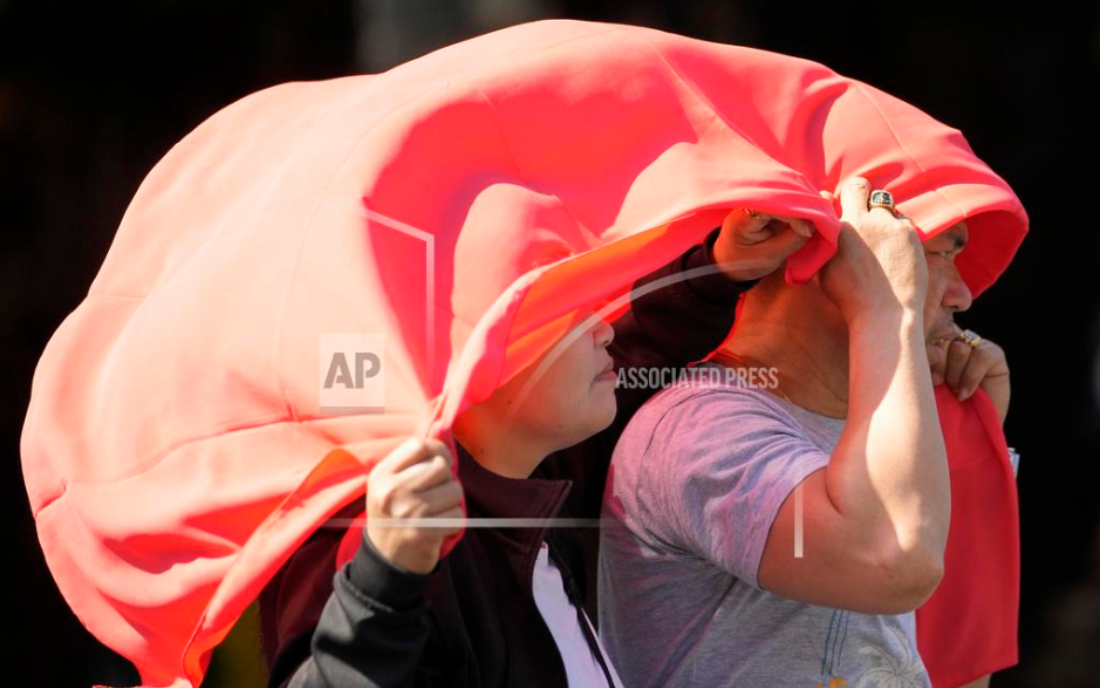
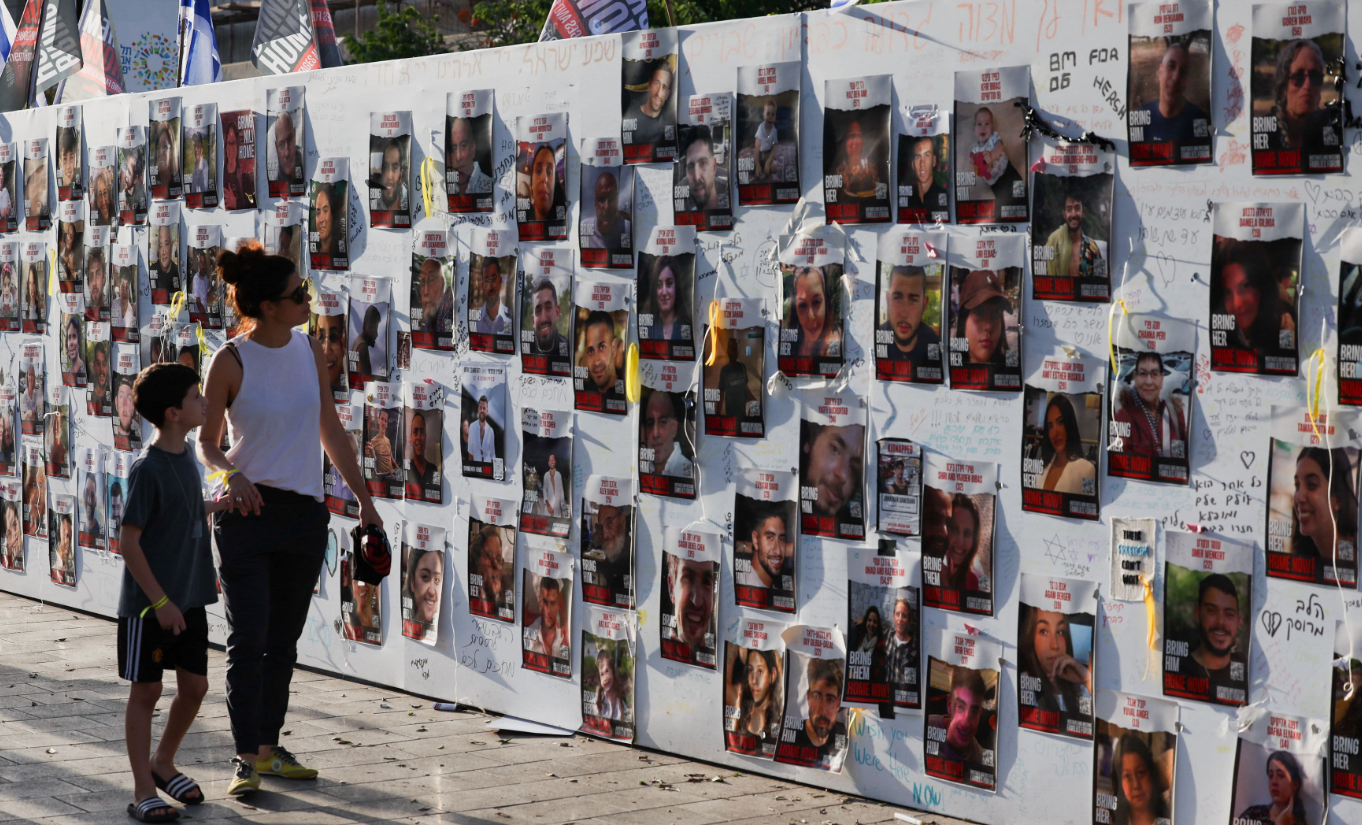
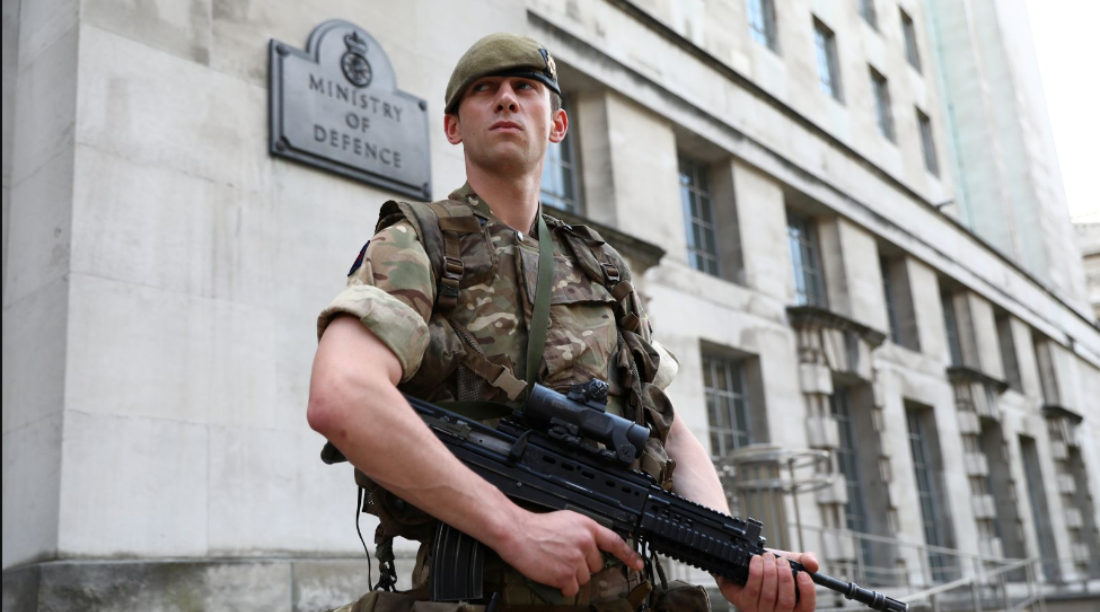


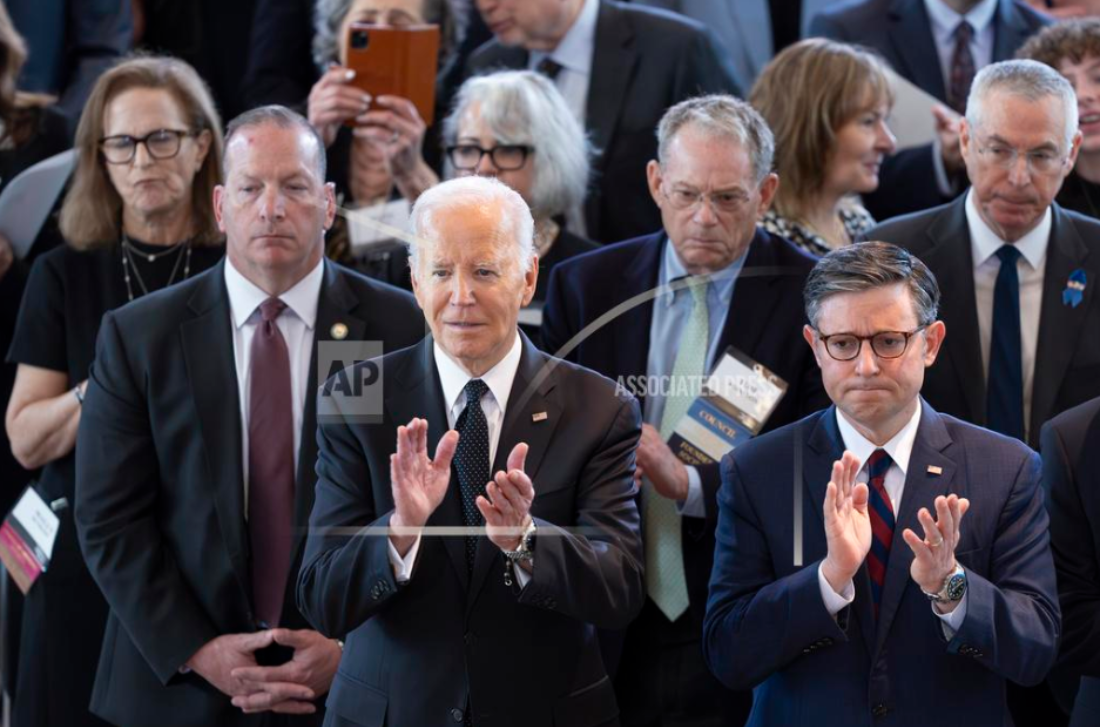

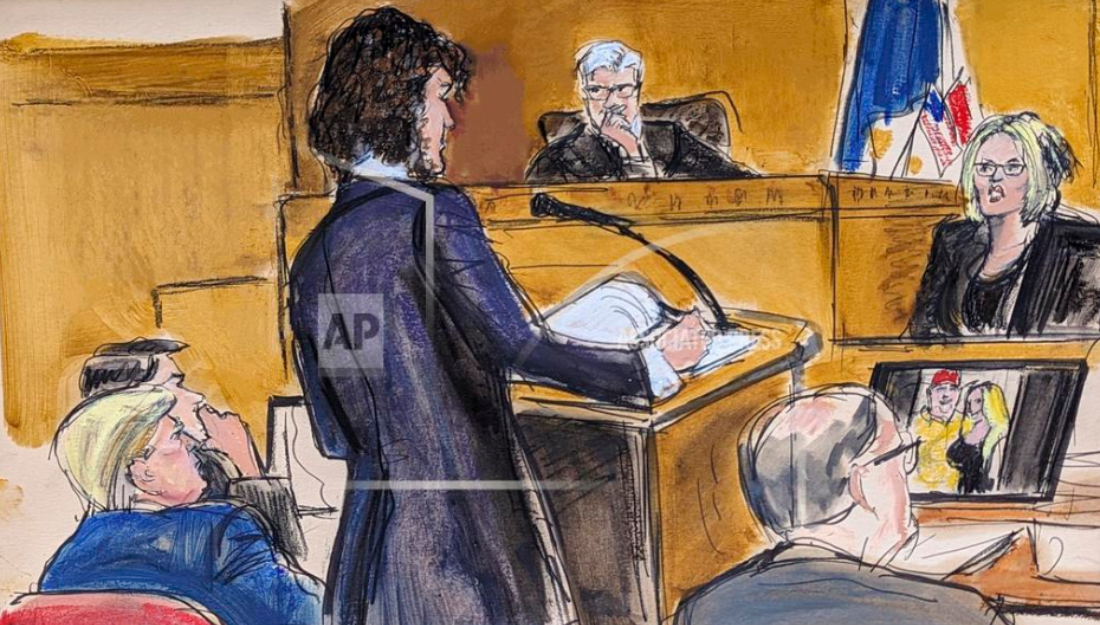
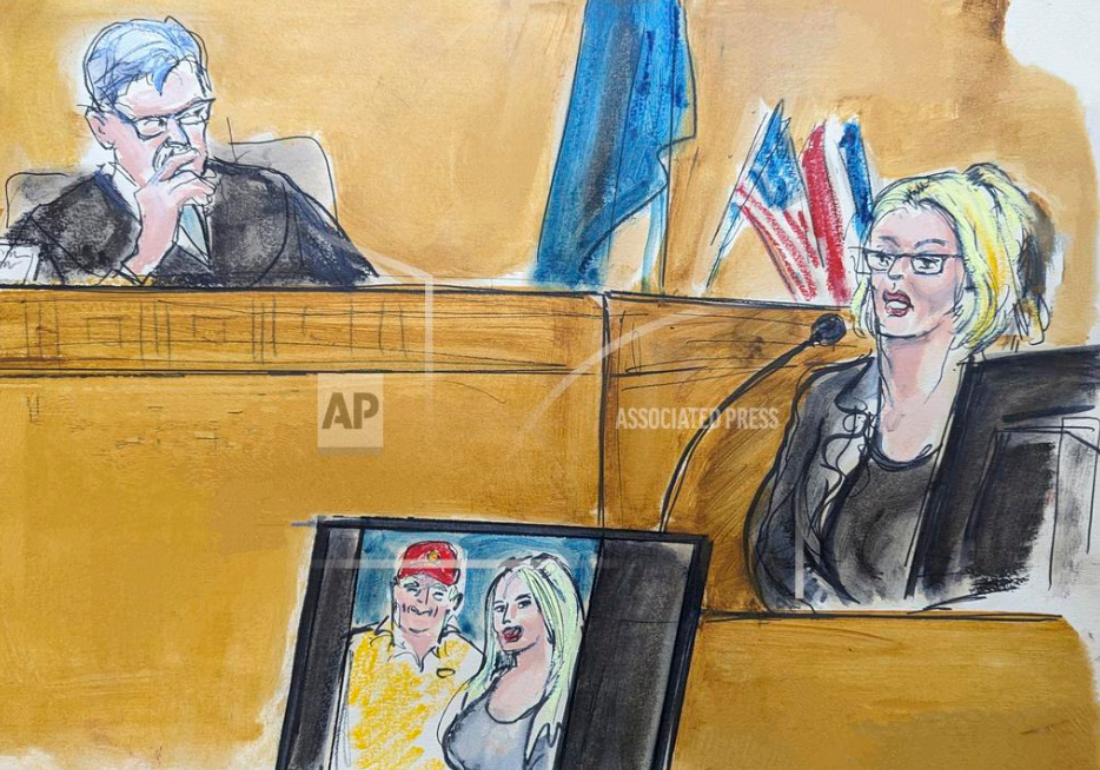
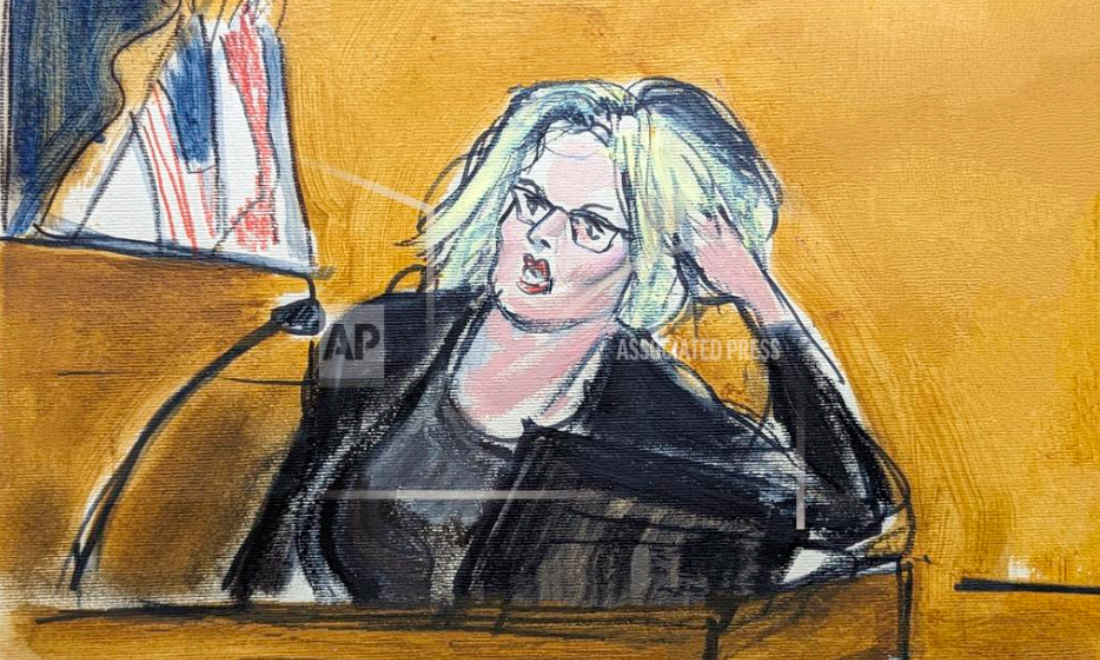
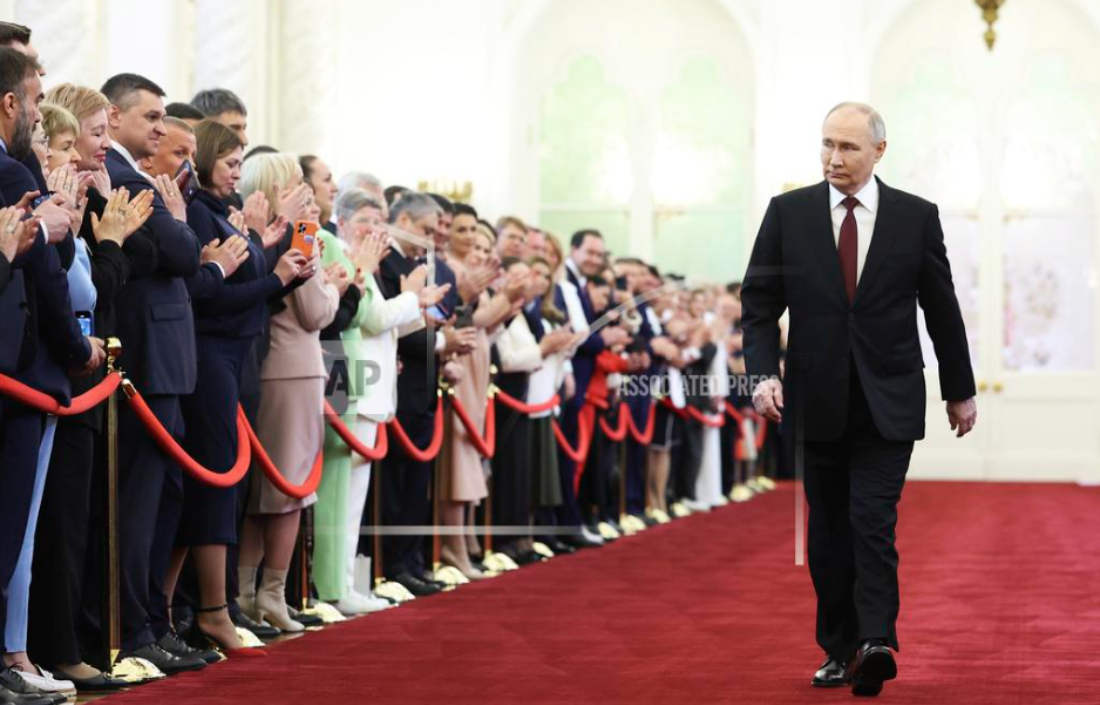
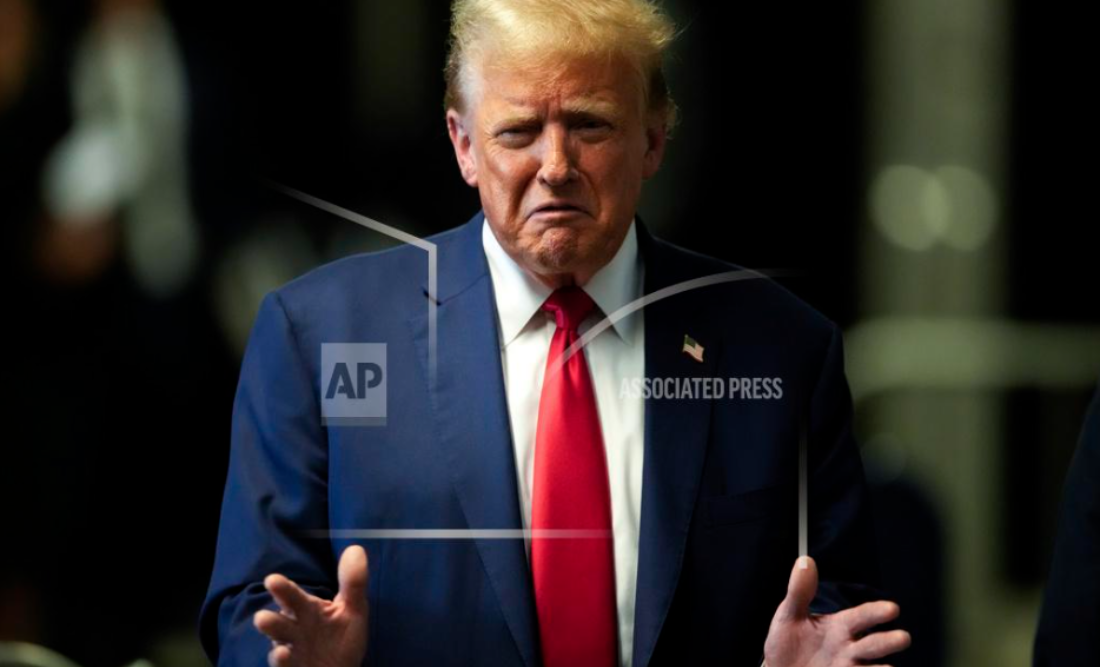


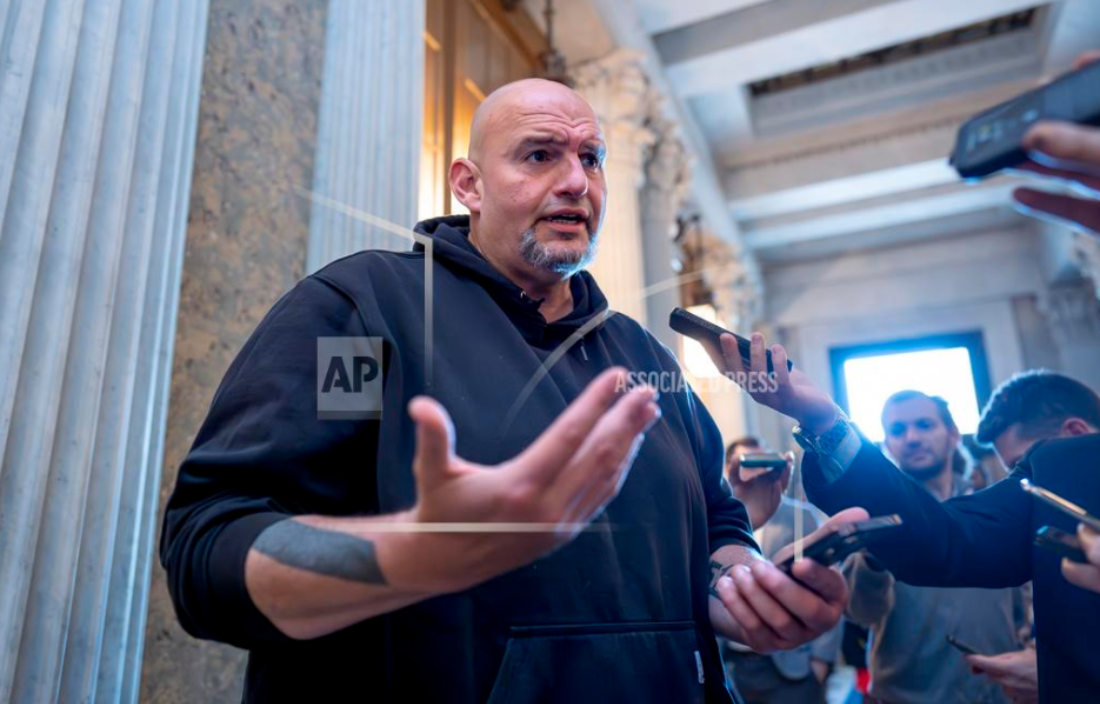
Iran's Nuclear Doctrine Shift Amid Threats: Analysis and Implications
in World News
Posted
In a significant declaration, a top adviser to Iran's Supreme Leader, Kamal Kharrazi, has announced that Iran may revise its nuclear doctrine if faced with existential threats, particularly from Israel. This statement has sparked fresh concerns about Iran's nuclear intentions and the potential ramifications for regional stability.
Kharrazi emphasized that while Iran currently has no plans to develop nuclear weapons, the country may be compelled to alter its military strategy in response to external threats. His remarks, reported by Iran's Student News Network, underscore Tehran's readiness to adapt its defense posture based on perceived risks to its security.
The backdrop of Kharrazi's statement lies in Iran's longstanding position on nuclear weapons. Supreme Leader Ali Khamenei has previously issued a fatwa banning the production and use of nuclear bombs, asserting that such actions are religiously forbidden. However, Kharrazi's assertion suggests a willingness to reconsider this stance under certain conditions.
This shift in rhetoric comes amidst escalating tensions between Iran and Israel, with the latter being a vocal critic of Iran's nuclear program. Kharrazi's reference to the "Zionist regime" signals Iran's perception of Israel as a primary adversary and underscores the potential role of geopolitical dynamics in shaping Iran's security calculus.
Moreover, recent developments have added fuel to the fire of regional instability. Iran's Islamic Revolutionary Guard Corps (IRGC) commander, Ahmad Haghtalab, hinted at the possibility of revising Iran's nuclear policy in response to Israeli threats. This highlights the volatile nature of the situation and the potential for further escalation.
In April, the confrontation between Iran and Israel reached a dangerous peak, with Tehran launching a barrage of missiles and drones targeting Israel. This aggressive response was purportedly triggered by a suspected Israeli strike on an Iranian facility in Syria, resulting in casualties among senior IRGC officials.
The tit-for-tat exchanges between Iran and Israel underscore the fragility of the regional security landscape and the potential for miscalculation. While both sides have thus far avoided a full-scale conflict, the risk of escalation remains ever-present, with grave implications for the wider Middle East.
Amidst these tensions, the role of international actors, particularly the United States and the European Union, becomes crucial. The international community must work to de-escalate tensions and prevent further deterioration of the situation. Diplomatic efforts, coupled with dialogue and engagement, offer the best hope for resolving the underlying grievances and addressing security concerns.
Furthermore, the role of multilateral institutions, such as the International Atomic Energy Agency (IAEA), is paramount in ensuring transparency and accountability in Iran's nuclear activities. The IAEA's recent criticism of Iran's lack of cooperation underscores the need for robust monitoring and verification mechanisms to prevent nuclear proliferation.
In conclusion, Iran's announcement regarding a potential shift in its nuclear doctrine highlights the complex and volatile nature of regional dynamics in the Middle East. While the prospect of armed conflict remains a concern, diplomatic engagement and multilateral cooperation offer avenues for mitigating risks and promoting stability. The international community must remain vigilant and proactive in addressing the underlying drivers of tension to prevent further escalation and uphold peace and security in the region.
2024-05-10
Get our Daily Newsletter - Click HERE to subscribe